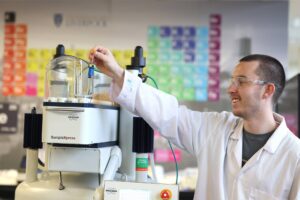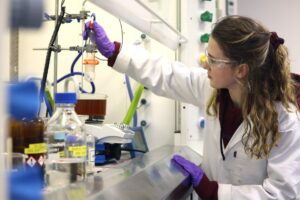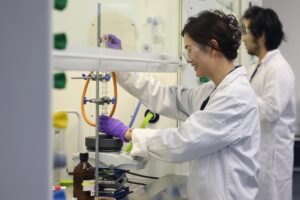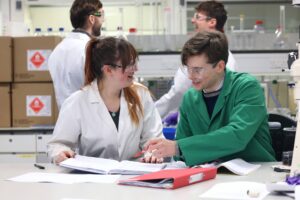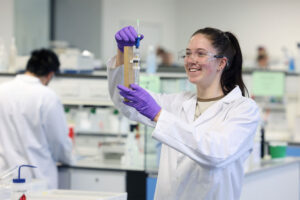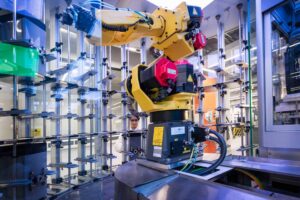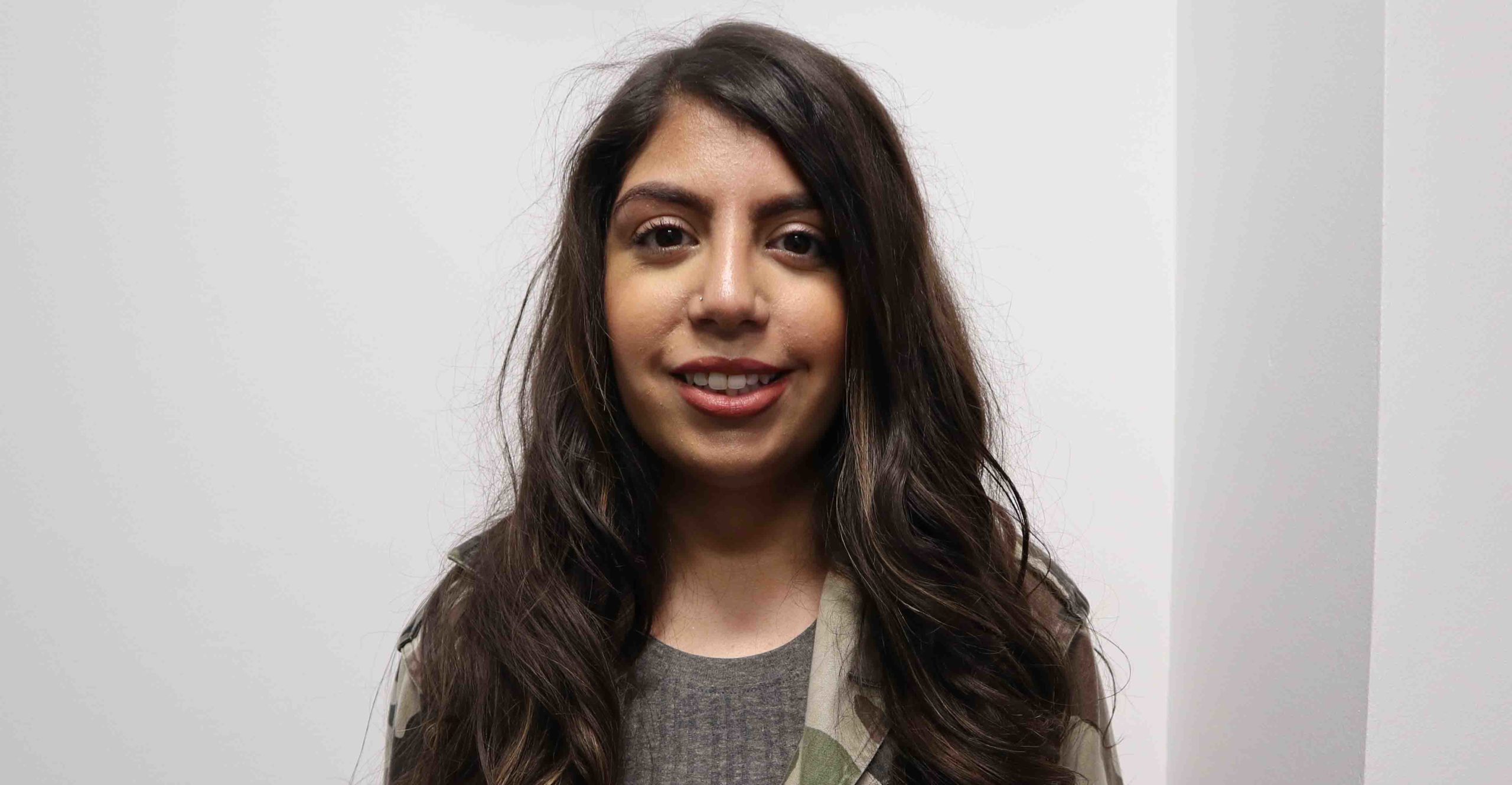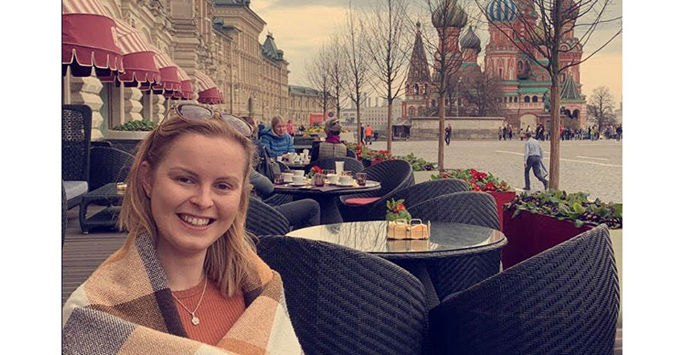How you'll learn
A knowledge of core chemistry is fundamental to any chemistry degree. For all years of study, core chemistry material is delivered in a series of interactive lectures, with the interdisciplinary nature of chemistry showcased appropriately. Core concepts are contextualised with publications of recent scientific research whilst encouraging students to be critical of such material, building digital fluency alongside engaging with traditional and modern digital platforms. This is supported by plentiful workshops run by academics to help practice application of material in a supportive and constructive way.
We embrace the diverse nature of our students, whether through their background or pre-university qualification, by offering foundation modules to ensure students have reached a particular competency to progress in wider subjects such as maths, physics and molecular biology. Practical work follows three main themes of synthetic, measurements and digital chemistry across years 1 to 3 with supported assessment preparation time offered to students. We make use of portfolios throughout all lab courses to give students space to fail, reflect and improve to develop lifelong learning. Numerous collaborative group work activities across core modules allow students to consider and discuss major societal and environmental challenges such as UN SDGs and green chemistry principles. Additionally, group work based around applications of industrial research allow further understanding of how industrial processes relate to planetary boundaries and global systems.
We believe the development of the person is core to success, through enhancing professional, employability and entrepreneurial skills via embedded activities throughout all years of our core curriculum including reflective activities, group work, presentations, posters and peer-to-peer activities. Confidence building is developed continuously through discursive and interactive sessions, with learners contributing ideas and analysis in a ‘safe space’ for sharing of ideas and expertise. Additional support is available via our academic advisors to encourage personal development planning for the students.
How you're assessed
All years of study (with the exception of year 1) contribute to the final degree classification. Traditional examinations test learning and problem solving and make and range from 2-4 exams accounting for ~40-50% of our programmes. We supplement this with a range of assessments which are designed to mimic the formats used in employment and postgraduate environments, supporting student preparedness for future careers including:
- Authentic tasks are linked to research-connected teaching, such as mini-project lab rotations and research projects aligned with departmental research clusters
- Report writing, problem-solving tasks, reflective portfolios, and elevator pitches
- Communication-style outputs such as recorded videos, posters, journal-style science communication, and presentations
- Students engage in reflective activities, enabling them to evaluate and articulate how their developed skills contribute to employability and lifelong learning
- Group-based tasks are structured to promote inclusive collaboration, encouraging all students to contribute and learn from diverse perspectives while working towards shared goals.
Feedback is designed to be timely and developmental, helping students self-assess and progress in a structured, supportive environment. Examples include:
- Students receive formative feedback both verbally and in writing through formative workshops and coursework
- Feedback from a range of sources including staff, demonstrators, and peers, supporting iterative learning and reflection
- Scaffolded support such as write-up sessions, catch-up opportunities, and resilience-building practices allow students to respond to feedback and improve
- Group-based activities include peer feedback opportunities, enabling students to give and receive constructive input within their teams, helping them improve both content and collaboration skills.
Inclusive and accessible practices are embedded throughout our course material design and deployment, such as templates using accessible fonts and colour schemes and prompt release onto our virtual learning environment. Our assessments and feedback are supported in numerous ways:
- Prelab resources and virtual tours allow students to prepare independently and build confidence before engaging in practical work and assessment
- Students will prepare presentations and related materials using modern inclusive practices.
Liverpool Hallmarks
We have a distinctive approach to education, the Liverpool Curriculum Framework, which focuses on research-connected teaching, active learning, and authentic assessment to ensure our students graduate as digitally fluent and confident global citizens.
The Liverpool Curriculum framework sets out our distinctive approach to education. Our teaching staff support our students to develop academic knowledge, skills, and understanding alongside our graduate attributes:
- Digital fluency
- Confidence
- Global citizenship
Our curriculum is characterised by the three Liverpool Hallmarks:
- Research-connected teaching
- Active learning
- Authentic assessment
All this is underpinned by our core value of inclusivity and commitment to providing a curriculum that is accessible to all students.


